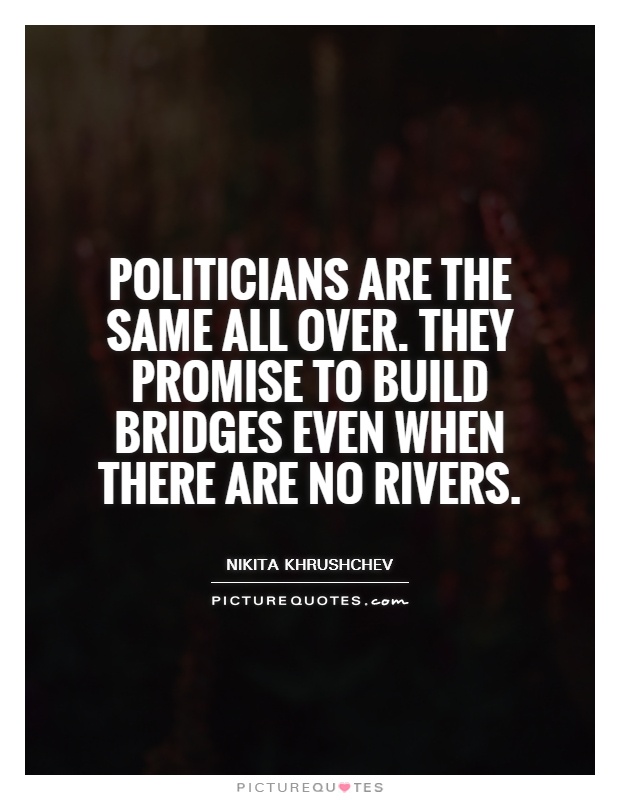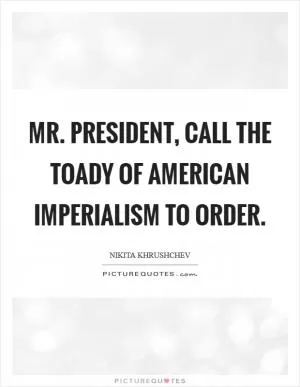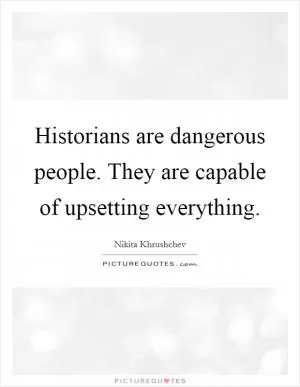Politicians are the same all over. They promise to build bridges even when there are no rivers

Politicians are the same all over. They promise to build bridges even when there are no rivers
Nikita Khrushchev, the former leader of the Soviet Union, was a prime example of a politician who made grand promises without always delivering on them. Throughout his time in power, Khrushchev was known for his bold and ambitious plans to modernize and improve the Soviet Union, often promising to build bridges even when there were no rivers to cross.Khrushchev came to power in 1953 after the death of Joseph Stalin, and he quickly set about implementing a series of reforms aimed at improving the lives of the Soviet people. One of his most famous promises was his pledge to build communism in the Soviet Union within 20 years, a goal that ultimately proved to be unattainable. Despite his best efforts, Khrushchev was unable to fully realize his vision of a utopian socialist society, and his tenure as leader was marked by a series of setbacks and failures.
One of Khrushchev's most infamous projects was the construction of the White Sea-Baltic Canal, a massive waterway that was intended to connect the White Sea to the Baltic Sea. The project was plagued by cost overruns, delays, and shoddy construction, and it ultimately failed to live up to Khrushchev's grandiose promises. The canal was never fully completed, and it remains a symbol of the Soviet Union's inability to deliver on its ambitious infrastructure projects.
Khrushchev's penchant for making extravagant promises without always following through on them earned him a reputation as a politician who was more interested in grandstanding than in actually getting things done. His tenure as leader was marked by a series of high-profile failures, including the Cuban Missile Crisis and the disastrous Virgin Lands Campaign, which aimed to increase agricultural production in the Soviet Union but ultimately led to widespread famine and hardship.












 Friendship Quotes
Friendship Quotes Love Quotes
Love Quotes Life Quotes
Life Quotes Funny Quotes
Funny Quotes Motivational Quotes
Motivational Quotes Inspirational Quotes
Inspirational Quotes